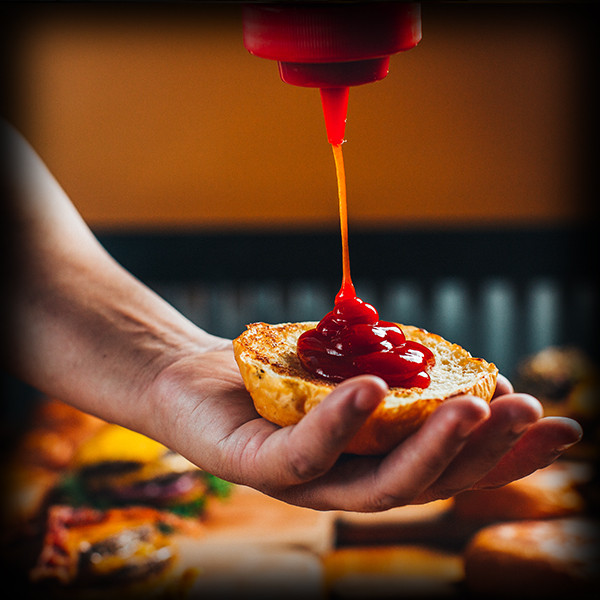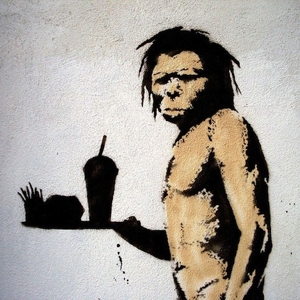Makers of processed foods have known for ages that they can make their products more appealing to consumers by pumping them full of Fat and Sugar, and they’ve done just that. Now, new data from real online reviews reveals that they may have gone too far trying to entice our taste buds…
 Much of the excess Fat, Salt and Sugar on our most-highly processed foods
Much of the excess Fat, Salt and Sugar on our most-highly processed foods
comes from added ingredients in what we put on them – even
condiments such as Ketchup that are supposed to
be mainly Tomatoes, Vinegar and Spices.
We all know, thanks to science, that humans are hard-wired to crave Sugar and Fat. It goes back to a time when were were hunters and gatherers, and the most likely of us to survive were those with genes that favoured a preference for vital nutrients like Fats and Sugars, and ate as much of them as we could when they were available. Storing them as body fat carried our forebears through lean times.
But we now have a fight on our hands to deny this siren call of our inner-most urges if we want to avoid obesity, along with the host of health issues it poses.
The bad news is, we have also developed a taste, literally and figuratively, for modern processed foods which are invariably high in added Sugars and Fats, and therfore just naturally more enticing to us than fresh Fruit and Veggies and other healthier options.
Now scientists have discovered that the food processors may have found – and surpassed the natural limits to which they can ‘pump up’ their products.
What they did
Researchers at Monell Chemical Senses Center examined data posted on an open-source science site to examine 393,568 unique food reviews of 67,553 products posted by 256,043 Amazon customers over a 10-year period. Using a sophisticated statistical modeling program to identify words related to taste, texture, odor, spiciness, cost, health and customer service, the scientists computed the number of reviews that mentioned each of these categories.
What they found
Among the findings of the automated data-mining survey was a definite overall opinion that food today is too sweet. An abstract of the survey report explained:
“The focus on product over-sweetness was striking, as almost one percent of product reviews, regardless of food type, used the phrase ‘too sweet’. When looking at reviews that referred to sweet taste, the researchers found that over-sweetness was mentioned 25 times more than under-sweetness.”
Curiously, over- or under-Saltiness was almost never mentioned, in spite of the recent upsurge in awareness about excess Salt in processed foods.
The takeaway
“This is the first study of this scale to study food choice beyond the artificial constraints of the laboratory,” said Study Lead Author Dr. Danielle Reed. “Sweet was the most frequently mentioned taste quality and the reviewers definitively told us that human food is over-sweetened.”
“Together, the findings illustrate the potential uses of big-data approaches and consumer reviews to advance sensory nutrition, an emerging field that integrates knowledge from sensory science with nutrition and dietetics to improve health,” the abstract added.
My take
It’s about time someone spotlighted this issue, from a provable, scientific standpoint. Perhaps now that it has been definitively shown, in hard, statistical terms, that the masses want less-sweet foods, the food processing industry will cut back on at least one of its traditional flavour-pumping ingredients – added Sugar – for it’s own reasons and, in so doing, help society fight obesity.
I’d like to see mass studies like this one performed looking specifically at Salt and Fats. We might all be as surprised at the results of those analyses as many of us were by the results of the sweetness survey.
~ Maggie J.

